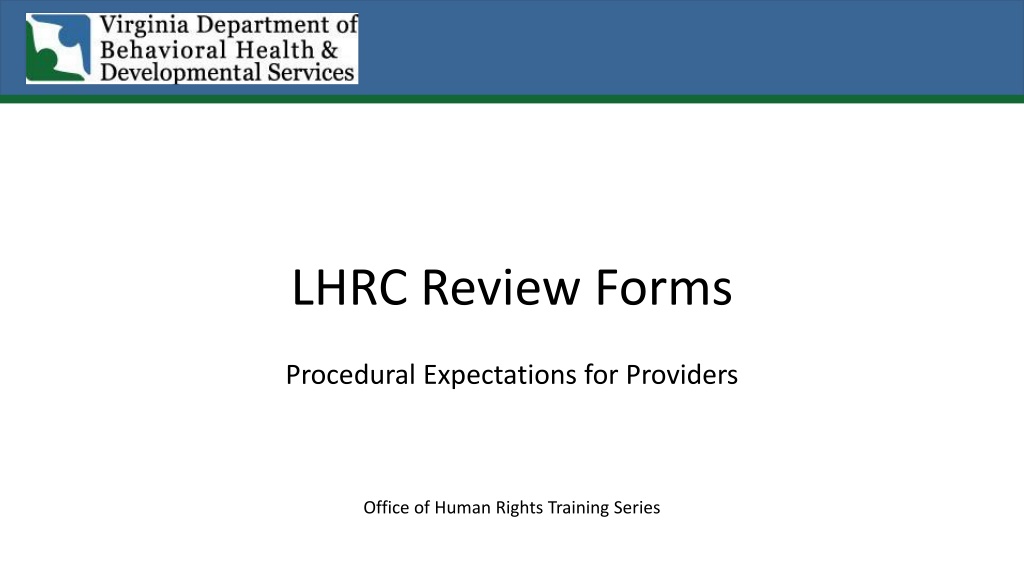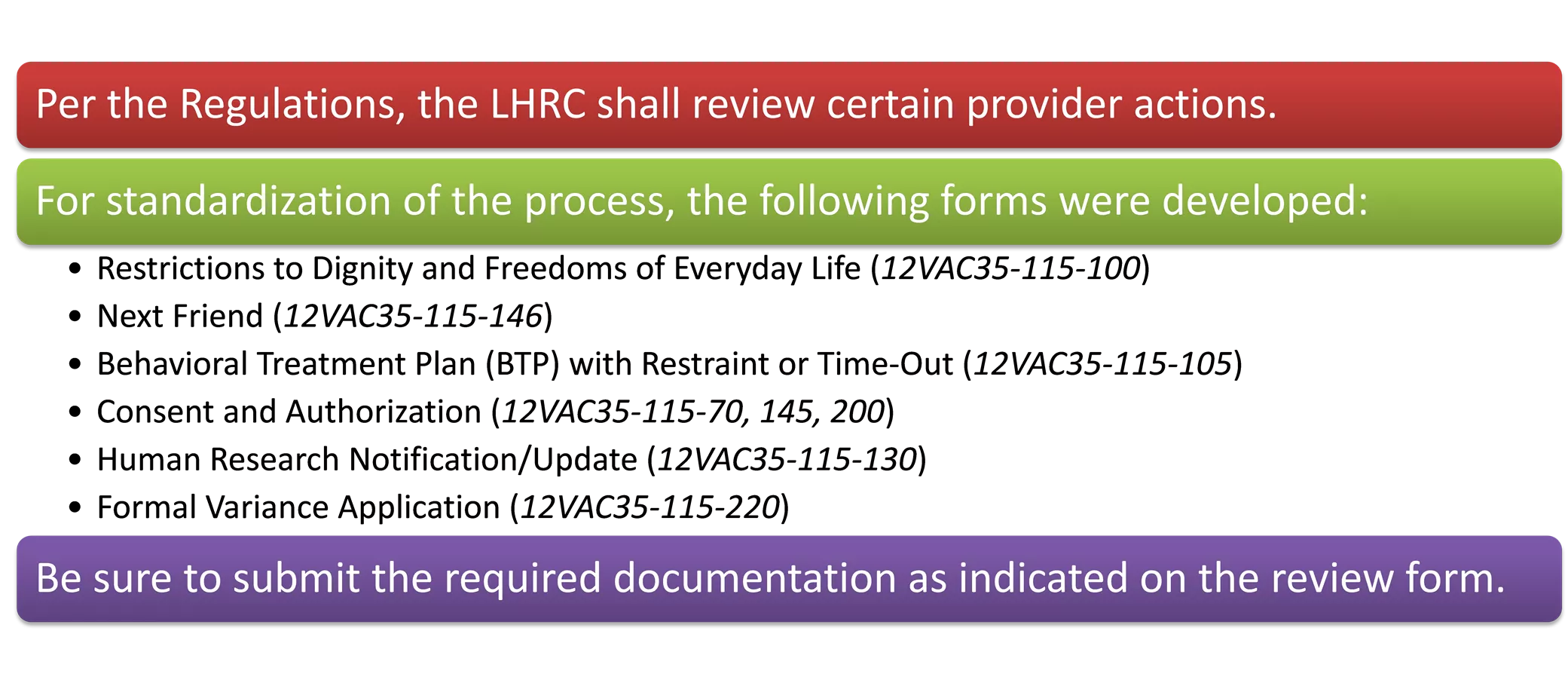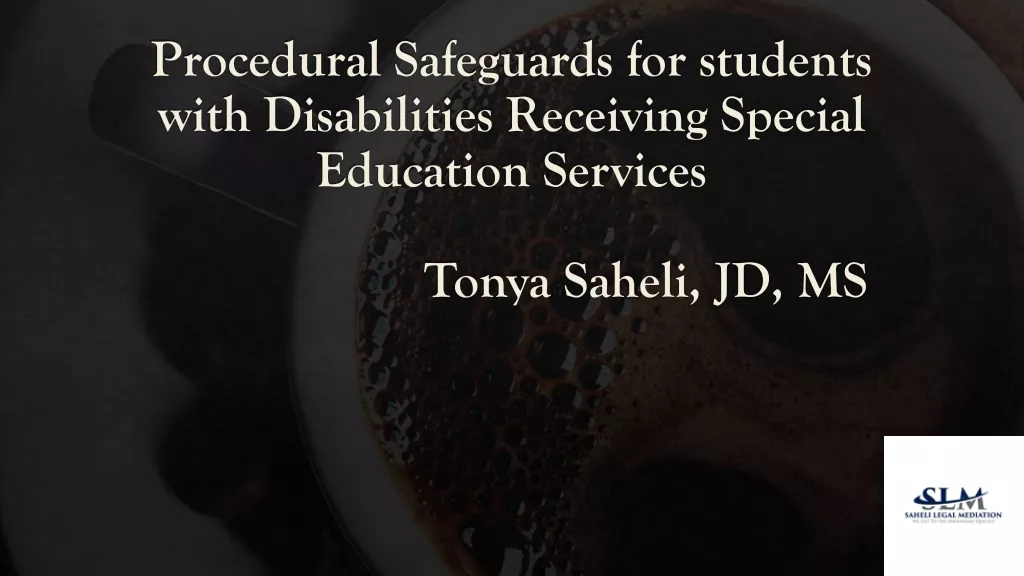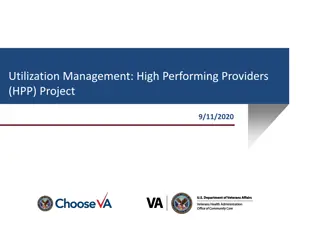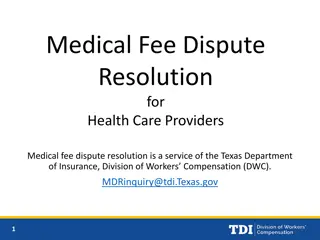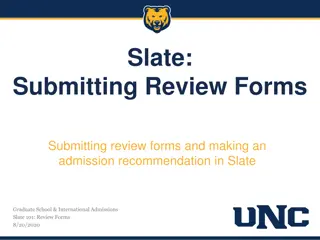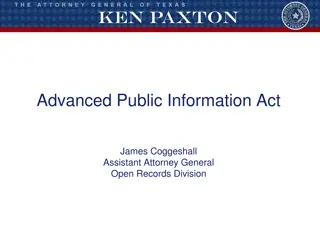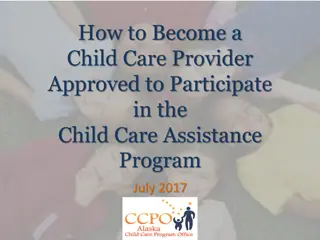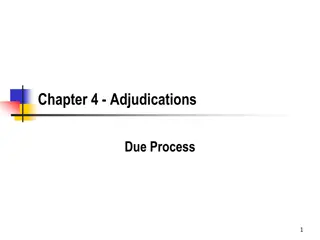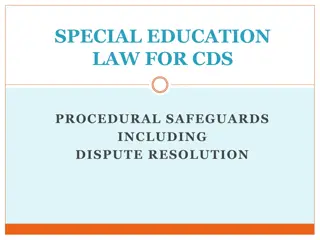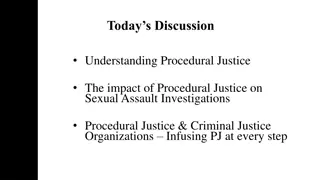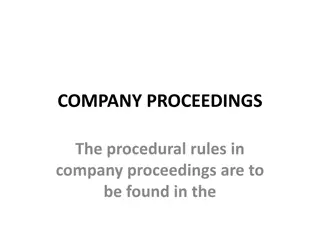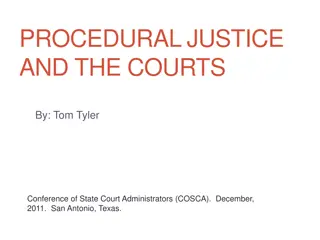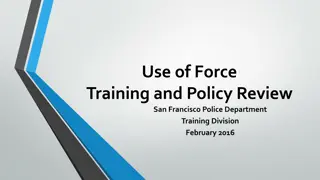LHRC Review Forms and Procedural Expectations for Providers
The LHRC, as per regulations, reviews certain provider actions through standardized forms like Restrictions to Dignity and Freedoms, Next Friend, Behavioral Treatment Plan, Consent and Authorization, and more. The process involves documentation submission and review to ensure compliance and safeguard rights. Specific criteria and review questions guide the assessment of restrictions on dignity and freedoms based on professional assessment and necessary documentation.
Download Presentation

Please find below an Image/Link to download the presentation.
The content on the website is provided AS IS for your information and personal use only. It may not be sold, licensed, or shared on other websites without obtaining consent from the author.If you encounter any issues during the download, it is possible that the publisher has removed the file from their server.
You are allowed to download the files provided on this website for personal or commercial use, subject to the condition that they are used lawfully. All files are the property of their respective owners.
The content on the website is provided AS IS for your information and personal use only. It may not be sold, licensed, or shared on other websites without obtaining consent from the author.
E N D
Presentation Transcript
LHRC Review Forms Procedural Expectations for Providers Office of Human Rights Training Series
Request for LHRC Review Forms Per the Regulations, the LHRC shall review certain provider actions. For standardization of the process, the following forms were developed: Restrictions to Dignity and Freedoms of Everyday Life (12VAC35-115-100) Next Friend (12VAC35-115-146) Behavioral Treatment Plan (BTP) with Restraint or Time-Out (12VAC35-115-105) Consent and Authorization (12VAC35-115-70, 145, 200) Human Research Notification/Update (12VAC35-115-130) Formal Variance Application (12VAC35-115-220) Be sure to submit the required documentation as indicated on the review form. Slide 2
Restrictions to Dignity & Freedoms Review for restrictions that lasts longer than 7 days or are imposed more than 3 times in a 30-day period. Dignity or assured rights (12VAC35 115-50) Freedoms of Everyday Life (12VAC35-115-100) Restrictions must be documented in the individual s services record. Per provider policies and procedures Typically, in the ISP or BTP, if applicable Slide 3
Restrictions to Dignity & Freedoms Restrictions to Dignity must: Be discussed with Advocate prior to implementation Be assessed by a licensed professional Prevent demonstrable harm Be reviewed monthly by the treatment team Restrictions to Freedoms must: Be reviewed regularly by the treatment team Be assessed by a qualified professional Be necessary and least restrictive Document removal criteria Slide 4
Restrictions Review Example Questions How do you know the restrictions are needed? What less restrictive alternatives have been utilized? What was the outcome? Is it documented in the services record, by a licensed professional, that demonstrable harm would result if the restriction is not implemented? (specific to Dignity) Who is the licensed professional and what are their credentials? (specific to Dignity) Who is the qualified professional who has worked with the individual and what are their credentials? (specific to Freedoms) Did a qualified professional involved in providing services assess the need for the restriction, in advance, and document all possible alternatives to the restriction? (specific to Freedoms) Please explain how the restriction is not intended for staff convenience. How are you working towards removal of the restriction? Where is the removal criteria documented in the plan? Slide 5
Document Review: Restrictions Table Description automatically generated Slide 6
Next Friend 12VAC35-115-146 Reviews are for the purpose to designate a person to serve as the substitute decision maker for an individual that has been determined to lack capacity to consent or authorize disclosure of information when no other AR is available. Reviews are meant to determine whether the proposed next friend meets regulatory requirements. Slide 7
Next Friend Review Example Questions How often does the individual have contact with the proposed next friend appointment? Personal questions are not allowed When was the last time the individual had contact with the proposed next friend? Does the individual agree to the proposed next friend being designated as the authorized representative? Only questions relevant to the proposed next friend s appropriateness to serve are allowed What is your understanding of the role of next friend? How do you know what the individual s preferences are? It is preferred that the individual is present for the review; however, they do not have to be present. If the individual is present, do they agree with the next friend designation? Slide 8
Document Review: Next Friend Capacity Evaluation Evidence that the individual does not object (if the individual does not attend the review) Table Description automatically generated Slide 9
BTPs with Restraint or Time Out Reviews are only for BTPs with restraint and/or time-out for behavioral purposes. 12VAC35-115-105 If a BTP includes time-out or restraint for behavioral purposes, the provider maintains responsibility for ensuring: The behaviors being addressed present an immediate danger to the individual or others; A licensed professional or licensed behavior analyst conducted a detailed and systematic assessment of the behavior and the situations in which the behavior occurs; The proposed restrictions outweigh the risks of other less restrictive interventions; The BTP is developed in accordance with their internal policies and procedures, including: Having a qualified professional initiate, develop, carry out, and monitor the plan; Submitting the plan to an Independent Review Committee (IRC), prior to implementation, to review and approve the plans technical adequacy and data collection procedures; and, The BTP and the IRC approval is submitted to the LHRC, prior to implementation (this is for providers other than intermediate care facilities) Slide 10
BTP Review Example Questions How has the individual/AR been involved in the development of the Plan? What type and how often will training be required of staff implementing the restraint? What lesser restrictive alternatives were attempted and/or implemented prior to the development of this plan? What was the outcome? What is the fading criteria? Does the individual have any contraindications related to trauma? Slide 11
Document Review: BTPs Table Description automatically generated Independent Review Committee (IRC) approval Assessment completed by a licensed professional or licensed behavioral analyst Evidence of the following: expressed need for the restraint, time out documentation indicating previously attempted or considered less restrictive measures that were either unsuccessful or would not ensure success BTP ISP Slide 12
Consent & Authorization 12VAC35-115-200 This review is for the purpose of determining whether the process was followed when: A director s decision is believed to affect the individual who believes the decision requires the individual s/AR consent or authorization. There are conflicting capacity evaluations (from the provider and an independent evaluator); or An individual objects to an AR appointment; Slide 13
Consent Review Example Questions When was the individual s most recent capacity evaluation completed? Was capacity properly evaluated according to 12VAC-35-145? Was the AR designated according to 12VAC-35-146? Slide 14
Document Review: Consent & Authorization Graphical user interface, text, application, email Description automatically generated If objecting the capacity evaluation: provider s evaluation independent evaluation If objecting an AR appointment, evidence of proper AR designation, including: evidence the individual s preferences were considered If objecting the director s decision: any evidence specific to the decision under objection Slide 15
Human Research Notification/Update Reviews are for the purpose of determining whether the provider has followed the regulatory process to assist an individual who wants to participate in human research. 12VAC35-115-130 Slide 16
Human Research Example Questions How is the individual/AR/Guardian notified of their right to end their participation in the study? Who does the individual/AR/Guardian contact if they want to make a complaint about the research process? How do you assess whether the individual/AR/Guardian has a clear understanding of the informed consent related to the research study? Slide 17
Document Review: Human Research Graphical user interface, text, application, email Description automatically generated Evidence of signed informed consent Evidence of institutional review board (IRB) approval Slide 18
Formal Variance Application Review of applications for variances are limited in scope for the LHRC. The LHRC should: Invite oral or written statements from stakeholders. Recommend approval, modification, or disapproval to the SHRC. Modification requests, disapprovals based in regulatory requirements. 12VAC35-115-220 Slide 19
Variance Review Example Questions Has the governing body approved the request for variance? Licensed providers = Board State operated facilities = Commissioner What is the justification for the variance request? What are the changes to your policy/operations that are different then prescribed in the regulations and how do they benefit the individual(s)? How will you know when the variance is no longer needed? How did you ensure all impacted individuals and stakeholders were informed about your request for a variance? Are there any oral or written statements concerning the variance request? Slide 20
Document Review: Variance Application Evidence of approval from governing body or Commissioner Evidence of notification to impacted individuals Proposed wording of variance (e.g., policy/procedure), including: justification time limits, conditions for duration and removal criteria Graphical user interface, text, application, email Description automatically generated Slide 21
Reminders Utilize your assigned Manager Follow all directions & expectations Slide 22
State Facilities: Brandon Charles | 804.486.0085 brandon.charles@dbhds.virginia.gov Central State Hospital/Western State Hospital/Eastern State Hospital/Catawba Hospital/Piedmont Geriatric Hospital Southern VA Mental Health Institute/Northern VA Mental Health Institute/Southwest VA Mental Health Institute Hiram Davis Medical Center/Commonwealth Center for Children & Adolescents/VA Center for Behavioral Rehabilitation Southeastern Virginia Training Center 2 1 Ann Pascoe | 804.297.1503 ann.Pascoe@dbhds.virginia.gov Cassie Purtlebaugh | 804.382.3889 cassie.purtlebaugh@dbhds.virginia.gov 3 4 5 Mandy Crowder| 434.713.1621 mandy.crowder@dbhds.virginia.gov Reginald Daye | 757.253.7061 reginald.daye@dbhds.virginia.gov VACANT| 804.524.7479 mandy.crowder@dbhds.virginia.gov
Central Office Contacts Jennifer Kovack Associate Director, Community Operations jennifer.kovack@dbhds.virginia.gov Mary Clair O Hara Associate Director, Facility Operations mary.ohara@dbhds.virginia.gov Taneika Goldman State Human Rights Director taneika.goldman@dbhds.virginia.gov Slide 24
Thank You For Your Service On behalf of the Office of Human Rights, thank you for your commitment to the individuals in our service delivery system. Slide 25
